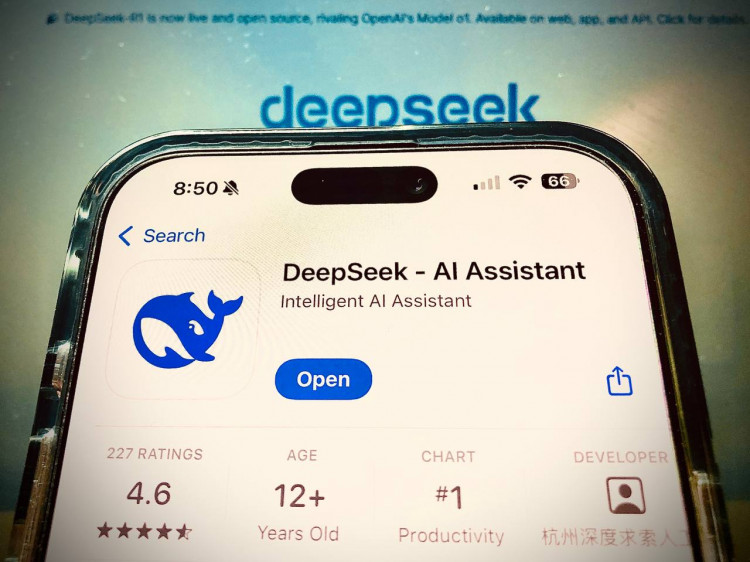Chinese artificial intelligence startup DeepSeek is accelerating the launch of its latest AI model, R2, after its initial offering in January triggered global market disruptions and rattled Western competitors. The Hangzhou-based firm had initially planned to debut R2 in early May but now aims to release it as soon as possible, according to sources familiar with the company.
DeepSeek gained prominence after its R1 model, built using less powerful Nvidia chips, demonstrated capabilities competitive with AI systems developed by U.S. tech giants at far lower costs. The company's success has raised concerns in Washington, where maintaining AI leadership has been declared a national priority.
"The launch of DeepSeek's R2 model could be a pivotal moment in the AI industry," said Vijayasimha Alilughatta, chief operating officer of Indian tech services provider Zensar. He added that DeepSeek's approach of creating cost-effective AI solutions "would likely spur companies worldwide to accelerate their own efforts ... breaking the stranglehold of the few dominant players in the field."
The firm has remained secretive about its operations, with founder Liang Wenfeng declining media interviews since July 2024. Liang, a former quantitative hedge fund executive, is known for his unconventional management style, rejecting the rigid hierarchies of China's tech industry in favor of a research-driven approach. His company operates more like a laboratory than a traditional for-profit enterprise, according to former employees.
DeepSeek's success in producing high-performing AI models at a fraction of the cost has reshaped the industry's pricing structure. Analysts at Bernstein brokerage estimated that DeepSeek's AI services are priced 20 to 40 times cheaper than those of OpenAI. In response, major U.S. players have begun adjusting their own strategies. OpenAI recently introduced a more affordable O3-Mini model, while Google has lowered prices for access to its Gemini AI.
Despite its competitive edge, DeepSeek has faced scrutiny over its rapid computing expansion. The firm's early access to Nvidia A100 chips-banned for export to China since 2022-has drawn questions from U.S. security analysts. High-Flyer, the hedge fund that financially backs DeepSeek, invested heavily in AI supercomputing as early as 2020, allowing the company to develop its models despite U.S. trade restrictions.
The Chinese government has embraced DeepSeek's rise, integrating its models into at least 13 municipal government systems and 10 state-owned energy companies. Leading Chinese tech firms, including Lenovo, Tencent, and Baidu, have also incorporated DeepSeek models into their products. Alfred Wu, a specialist in Chinese policymaking at Singapore's Lee Kuan Yew School of Public Policy, said, Xi Jinping and Li Qiang have "signaled they endorse DeepSeek. Now everyone just endorses it."
The firm's rapid expansion has sparked international backlash. Countries including South Korea and Italy have removed DeepSeek's models from their national app stores, citing privacy concerns. Western regulators are now assessing whether China's AI growth could justify further restrictions on chip exports and software collaborations. "If DeepSeek becomes the go-to AI model across Chinese state entities, Western regulators might see this as another reason to escalate restrictions on AI chips or software collaborations," said Stephen Wu, an AI expert and hedge fund founder.
DeepSeek's recent service disruptions have also highlighted infrastructure challenges. Earlier this month, the company temporarily suspended API access due to server capacity shortages but has since resumed operations. Bloomberg reported that while customers can now add credits to use DeepSeek's API, server strain remains an issue during peak hours.
The startup's impact on AI cost structures has fueled debate among industry leaders. Google's AI chief Demis Hassabis suggested that DeepSeek's cost claims might be misleading, arguing that the company appears to report only final training expenses while omitting broader development costs. Meanwhile, SAP consultant Gokul Naidu praised DeepSeek's efficiency, stating that the firm "challenges the narrative that innovation must come at an unsustainable cost."



